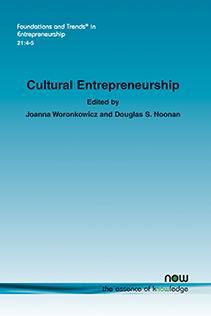Underserved Communities and Cultural Entrepreneurship
By Qingfang Wang, University of California Riverside, USA, qingfang.wang@ucr.edu
Abstract
This work examines cultural entrepreneurship within underserved communities (UCE), focusing on artist entrepreneurs who have historically faced underrepresentation, disinvestment, and systemic barriers in entrepreneurial activities. It explores the challenges these communities encounter, including discrimination, limited access to financial and professional networks, and exclusion from major cultural institutions. Despite these obstacles, artists from underserved backgrounds play a crucial role in enriching the cultural and creative industries, leveraging their work to express identity, foster social cohesion, drive economic development, and engage in political activism. The work highlights the intersectionality of entrepreneurial and social identities, the nature of social entrepreneurship within cultural enterprises, and the importance of inclusive entrepreneurship ecosystems. Addressing knowledge gaps, it proposes a future research agenda to better understand the dynamics of UCE and its impact on community revitalization. The work concludes with policy and practice recommendations that integrate cultural policy with economic development, fostering an equitable and sustainable environment for artist entrepreneurs in underserved communities.
Cultural Entrepreneurship
This volume explores the concept of Cultural Entrepreneurship, illustrating how creativity, culture, and business come together in innovative ways. Starting with a working definition -- “entrepreneurship in or of culture, including entrepreneurship in the cultural industries and entrepreneurship in the cultural arena of artistic and cultural values” – the volume examines key themes in current research. These include balancing artistic creativity with economic viability, navigating individual agency versus structural constraints in creative careers, and adapting to new business models from traditional arts organizations to emerging digital platforms. Highlighting an interdisciplinary perspective, the volume considers the economic, sociological, and cultural forces shaping entrepreneurial activities in creative realms. It provides both theoretical frameworks and practical insights, presenting cultural entrepreneurship as a dynamic field that combines artistic innovation with economic strategies.

Companion
Foundations and Trends® in Entrepreneurship, Volume 21, Issue 4-5 Special Issue: Cultural Entrepreneurship
See the other articles that are also part of this special issue.